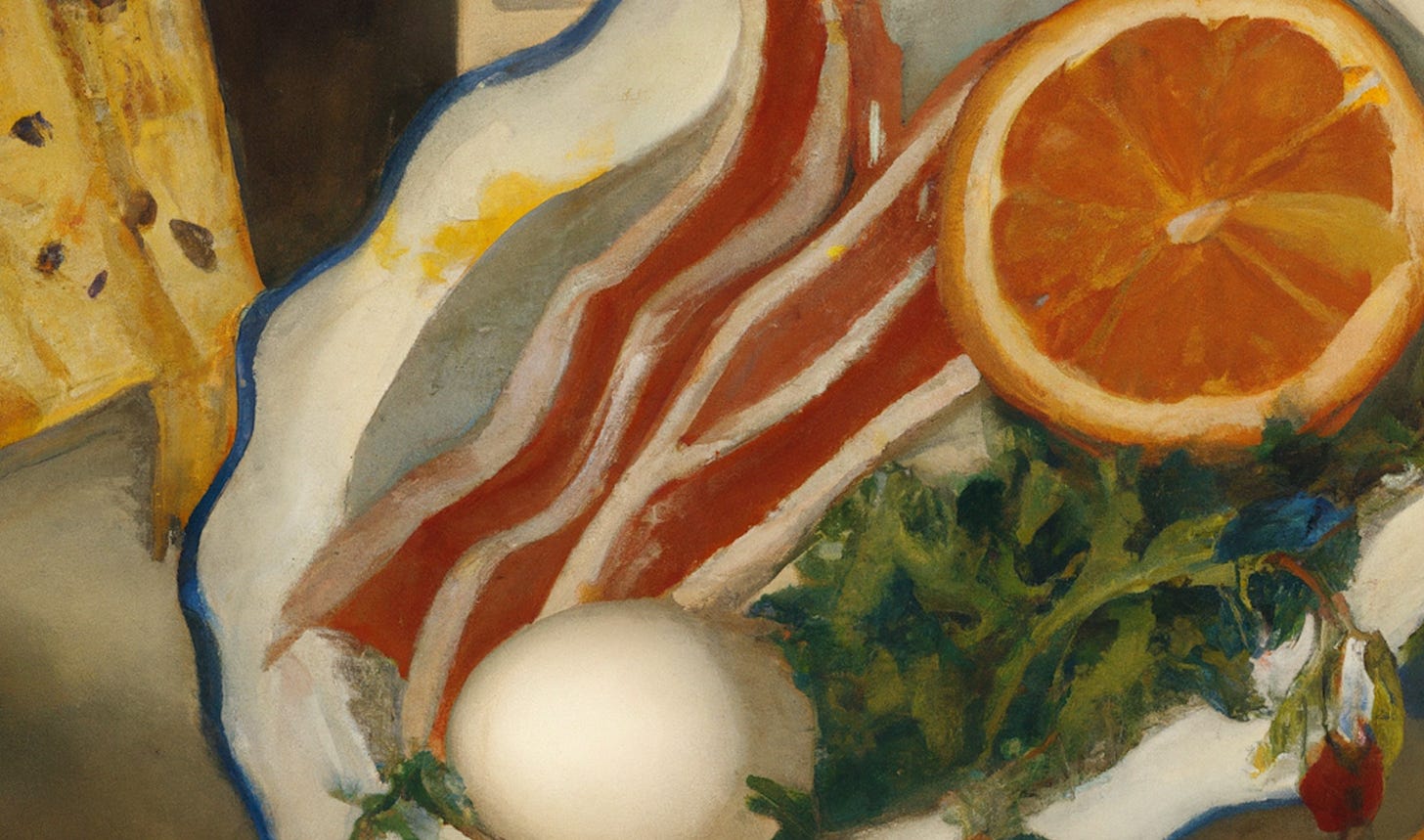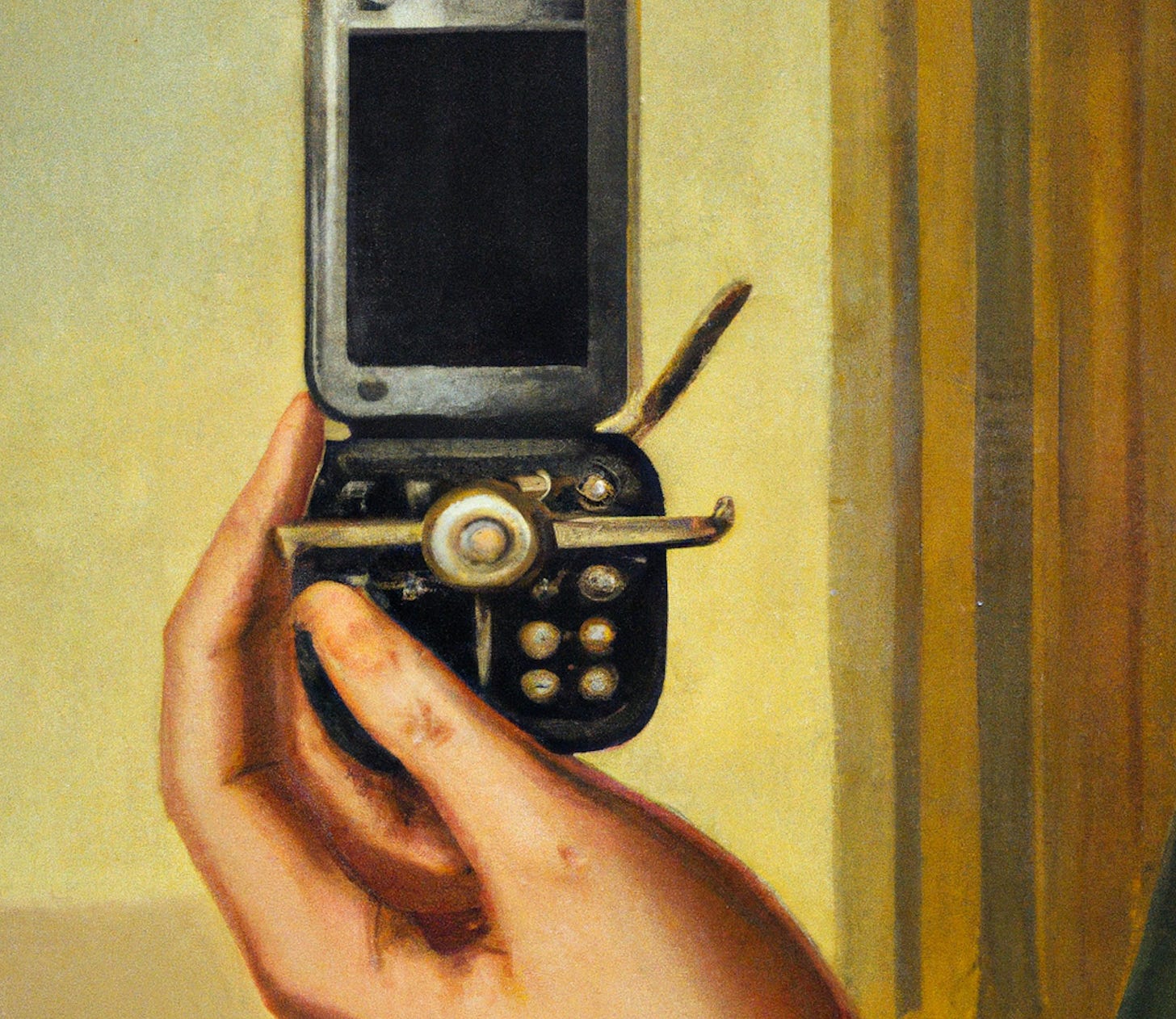I Love You, Elfa
The most I’ve ever paid for breakfast was at a restaurant in Reykjavik during the summer of 2016. It was at a spot on Laugavegur Street, where I ordered an orange wedge, a soft-boiled egg, a slice of toast, two strips of bacon, a berry parfait that came in a thimble-sized ramekin, and a sprinkle of arugula: $50.78, not including tip.
Because the menu was in krónurs, I didn’t actually realize how much it was until I saw my Visa statement days later, though the truth of the matter is that I hadn’t eaten since Denver, and I would’ve happily paid twice as much for half the food.
I’ll always remember that meal.
I think I had beaten the morning rush. Perhaps it had beaten me. In either case, there were only a couple of other patrons, and so the waitress was occupying herself with the mindless busywork that respectable waitresses do between visiting tables: polishing cutlery, straightening menus, pretending to read something on the hostess stand… that sort of thing.
It was a very clean, well-organized restaurant, at least by American standards, and it wouldn’t have seemed like a mark of idleness had she just been sitting at the bar while twiddling her thumbs.
Roughly fifteen minutes after I had ordered, she came over to my table.
“It should be right out,” she said, with only the faintest hint of an accent.
“I’m in no rush,” I replied as I smiled and lifted my copy of The New York Times. I rarely read the print version, but I had found the previous day’s edition laying around at the terminal and figured it would be a good way to kill time between having internet.
“Ahh… American. Did you just get in from Keflavik?”
“I did.”
“Welcome. How do you like Iceland so far?”
I looked around the room for a moment, then out the window at the colorful shops and low-hanging clouds, and then back at her.
“It’s so… It’s……….. It’s very nice. It’s very… calm.”
“Oh yeah?”
“Yes, which is a nice change.”
She raised her eyebrows slightly. “America is not so calm?”
I chuckled. “It’s very eventful — very busy.”
“Yeah, I guess we don’t have to deal with–” She paused and tilted her head to read the front page headline: “The Failing Inside Mission to Tame Trump’s Tongue”
“That’s true,” I said, grinning, “luckily for you guys.”
“I’ve heard that name a few times before from other tourists. He’s a… celebrity?”
“Trump?” I clarified.
I lost my train of thought and stared at her for a moment. She was a very pretty girl.
She was around 5’8”, if I had to guess… maybe 5’7” without the Blundstones. She had pale gray eyes and blonde hair that dangled just below her shoulders, blending in at the tips with the fibers of her thick, sheep’s wool sweater. She was thin, but not thin like the girls I had met in New York — which is to say, thin as a result of playing handball and eating salted herring rather than skipping meals on coke-fuelled benders. You could tell by her skin that she ate real food. It was perfectly clear and smooth, and it bore the gentle luster that rests atop a freshly opened jar of creamed honey. Her jaw was stiff, but the bits of flesh above her cheeks were soft and rosy, which animated her in a sultry, commanding sort of way.
She had that distinct quality about her that makes you feel simultaneously protective and insecure after only a few seconds — that poised, paralyzing aura given off by especially pretty girls that somehow makes it feel as though the marrow is sloshing around in your bones.
blehhhhhhhhhhhhhhhhhhhhhhhhhhhhhhhhhhhhhhhhhhhhhhhhh
… Whatever ……... Some of you will know what I’m talking about.
She was probably 18, or 19, like me.
“Ummmmmm… Yeah. He’s a huge celebrity in America. He used to be on a TV show, but now he’s running for president.”
“Ahhh, that makes sense. I don’t really watch TV.”
“You haven’t seen him on social media?” I asked, half expecting her to break character and start smirking.
“Social media?”
“Twitter, Instagram, Facebook… That stuff.”
“Ohhhh…. No, I don’t have any of those. It’s not really my thing.
“Really? That’s… ummm… that’s shocking…”
And it was shocking. I was shocked.
Then, she reached into her pocket and pulled out a clunky Motorola flip phone, the type that had long gone out of fashion by the time I got my first phone, an LG Rumour, in the eighth grade.
“All the apps on the new phones with the big screens make me anxious,” she told me.
Once again, I found myself momentarily at a loss for words. It was such a bizarre experience. It didn’t seem real. Donald Trump was the most talked-about man in the world, and this girl claimed to have no idea who he was. Every media outlet and personality had been analyzing him like a bug under a microscope for at least the past year, yet this girl, living in a very modern, very Western country claimed to be completely in the dark.
Not having a smartphone? How many Zoomers do you know who don’t have a smartphone? Nobody has even called them “smartphones” since 2012….
And no social media? People like her don’t exist. The relationship she claimed to have with the world was what you’d expect of someone living in a Hasidic enclave, and yet she was completely inconspicuous.
I tried to act normal while I talked with her for another few minutes until my food was ready. She told me that her name was Elfa. She told me that she was also a part-time student taking courses in education, as well as an assistant at her aunt’s pastry shop. I learned that she had been born in Reykjavik, had lived in the city her entire life, and had no plans to leave anytime soon.
It’s totally possible that Elfa was fucking with me. It’s possible that the coy naivete was a well-practiced game. It’s possible that everything she said to me was a lie. Maybe that was her hustle: beguiling witless North American travelers who had just withdrawn a wad of denominationally obscure banknotes. If it was a game, she was playing exceptionally well.
But I do think she was being sincere. I believe what she told me. Nothing about her disposition struck me as crafty or contrived. To the contrary, she seemed completely dispassionate about the contents of The New York Times, and more broadly, about the goings-on of the outside world.
I think about Elfa quite a bit, and about what her life must be like.
A lot of people who criticize the modern information ecosystem do so on the grounds that it’s controlled and instrumentalized by a cadre of shadowy institutional elites, à la Orwell’s 1984. These people contend that, just like the subjects of Oceania, we are all impressed upon by a Big Brother who reigns in our thouhgtcrime through doublethink, newspeak, and other such ideological tactics.
In light of the censorship and monopolization that have characterized some of the most powerful governments and corporations in recent years, it’s hard to completely dismiss the people who feel this way. The movers and shakers are obviously thumbing the scale. But Neil Postman, one of the most impactful media theorists of the twentieth century, has suggested that Huxley’s A Brave New World serves as a far more compelling allegory for the current moment. In Huxley’s story, the capacity for free thought is not precluded by deliberate government strategy, but rather, by an overwhelming volume of information that has no practical application — just like the modern layman’s media diet, which is designed, first and foremost, to entertain.
Postman fleshes this comparison out quite extensively in his seminal work, Amusing Ourselves to Death, but his central argument is fairly straightforward: Because typographic content has given way to more stimulating and transmissible forms of media over the past two centuries (ie. the telegraph, radio, and television), the pressures that determine content production have come to favor aesthetics over substance, and therefore media consumption is now primarily a recreational act rather than a practical one. According to Postman, our media monoculture is constantly showering us with information that, while highly accessible and generally interesting, is useful only to a narrow few, or only in atypical circumstances:
How often does it occur that information provided to you on morning radio or television, or in the morning newspaper, causes you to alter your plans for the day, or to take some action you would not otherwise have taken, or provides insight into some problem you are required to solve? For most of us, news of the weather will sometimes have such consequences; for investors, news of the stock market; perhaps an occasional story about a crime will do it, if by chance the crime occurred near where you live or involved someone you know. But most of our daily news is inert, consisting of information that gives us something to talk about but cannot lead to any meaningful action. This fact is the principal legacy of the telegraph: By generating an abundance of information, it dramatically altered what may be called the “information-action ratio.” In both oral and typographic cultures, information derives its importance from the possibilities of action. Of course, in any communication environment, input (what one is informed about) always exceeds output (the possibilities of action based on information). But the situation created by telegraphy, and then exacerbated by later technologies, made the relationship between information and action both abstract and remote.
Our present relationship to information is a lot like being stranded at sea: there’s water everywhere, but nothing to drink.
We have immediate access to breaking news in every corner of the world, from the meeting of Des Moine’s City Council, to the score of a test match in Mumbai, to the latest sexual misadventures of our most cherished A-list stars, and everything in between. There’s way too much input and no effective way to triage. So we binge; we refresh; we doomscroll… endlessly….. …which makes us anxious and disoriented.
What sort of information was Elfa receiving through her flip phone?
I do wonder.
Maybe her aunt would text to let her know that the shop was out of baking soda. Maybe one of her friends would ask for the notes from uni. Maybe her parents would call to say they loved her. All of the input must have been so salient, so actionable, and closely tethered to her real life.
Elfa may have had the lowest information-action ratio of anyone I’ve ever met, which made her seem retrograde, but in a way that felt uniquely wholesome and human.
She wasn’t a curmudgeon, a Luddite, or an old soul. She had simply put the outside world on Do Not Disturb. She had built an epistemic moat and lifted the drawbridge. She was living contently, in a way that has been abandoned, unfortunately, by entire generations.
I love you, Elfa, and though I know you’ll never read this, I hope you still have the flip phone.
if *you* liked this piece, *you* should subscribe to get more pieces in the future!!!









